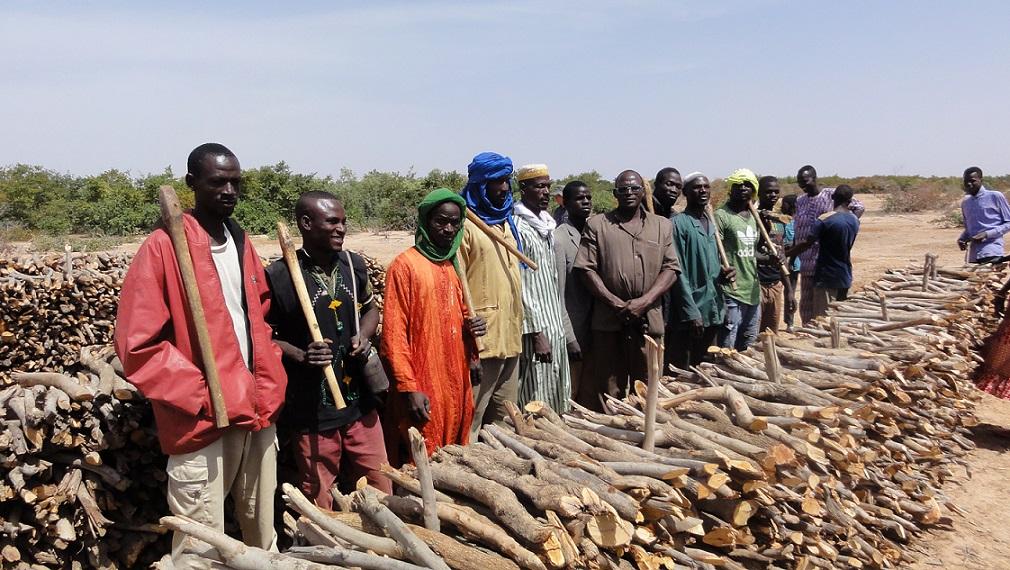- Home
- Worldwide
- CIRAD worldwide
- Projects
- FONABES project
Natural forest management and sustainable fuelwood supplies for towns in the Sahel - FONABES

Loadins a truck at the Mossipaga rural market in Niger © P. Montagne CIRAD
Issues
In the Sahel, forest and soil degradation is gaining pace, notably due to population pressure and poverty. Fuelwood (firewood and charcoal) gathering to supply cities is one of the main causes. In Burkina Faso, Mali and Niger, positive experiments were conducted to involve local people in managing these resources to ensure sustainable, competitive supplies to urban centres. Despite strategy updates in the 2000s, the local situation, with its considerable constraints, has continued to be marked by constant growth in urban demand (from 100 000 tonnes to almost 300 000 tonnes a year in Niamey, for instance), and by major economic issues. It is therefore necessary to improve how the value chains concerned are structured and function, to ensure sustainable management of forest stands and fair income distribution to all stakeholders (woodcutters and charcoal producers, villages, trader-transporters, urban wholesalers and consumers). The forestry authorities will continue to regulate and control the sector, as laid down in forestry laws.
Description
The project centres on five components:
- Updating and implementation of domestic fuel supply master plans (SDACDs) in the form of local forest management master plans (SDAFCs);
- Drafting and implementation of simplified forest resource use and management plans (PAGS);
- Design and concerted introduction of decentralized taxation schemes to involve municipalities in monitoring and controlling fuelwood flows and adherence to logging and marketing quotas;
- Establishment of consultation frameworks and mechanisms to ensure monitoring and capacity building on a national level, by basin committees involving the main stakeholders in the relevant value chains;
- Exchanges between the three countries and dissemination to other Sahel countries.
The project is innovative by virtue of establishing PAGS in the sub-region, involving municipalities in fuelwood logging and sales, and building a computerized fuelwood flow monitoring system, ensuring checks of the quotas specified in the PAGS. Decentralized authorities, central administrations and local people will thus be fully involved in coordinating fuelwood supplies to urban areas. The project is reproducible in other countries in the region.
Expected impacts
- Improved forest product marketing chains, benefiting the people who depend on them.
- Reduced greenhouse gas emissions thanks to better forest management.
- A stronger legal and institutional framework to regulate resource management, supervision and control practices and income distribution between stakeholders.
Contract partners
- International : CILSS
- Niger : DGEEF/ Debout Niger NGO / Bureau d’étude en ingénierie pour l’environnement (BEIE)
- Mali : DGEF/ id-Sahel offices / GEEDER
- Burkina Faso : DGEF/ Bureau EDI
























